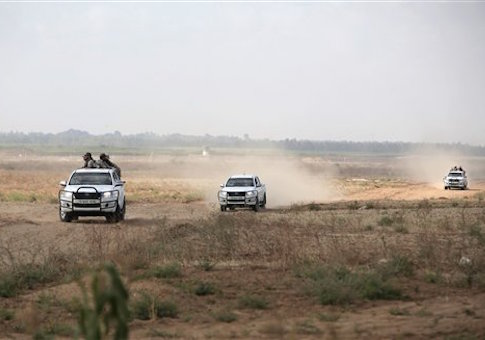JERUSALEM—A year after fighting a fierce war in the Gaza Strip, Israel and Hamas are engaged in indirect talks aimed at achieving a long-term cease-fire agreement.
While permanent peace is not on the agenda, the two sides are talking of a five- or 10-year truce during which Israel eases restrictions on the Gaza Strip and Hamas refrains from acts of hostility. Unlike similar talks in the past, this time neither side is denying them and both appear to be preparing their publics for the possibility that the ongoing tension and periodic wars of the past decade may give way to a rapprochement, although of limited duration.
Gaza has not yet recovered from last summer’s war, which left more than 2,000 Palestinians and 70 Israelis dead and more than 100,000 Palestinians homeless. Much of the strip is still in ruins and large-scale reconstruction has not begun. Despondency is widespread. Most young men tell reporters that they would leave for other countries if that were possible. Politically, Hamas is in its worst ever situation, with much of the Arab world, particularly neighboring Egypt, turning its back on it, and its economy shattered.
"For the past six months," writes analyst Alex Fishman in Yediot Achronot, "Hamas has been conveying a real desire for a direct dialogue with Israel on a long-term ‘tahadiya’ (lull)." Although there have been direct contacts in the past on tactical issues, he writes, "this time it is fundamentally different."
Hamas’ political wing began reaching out to Israel within two months of the end of hostilities last year. Gaza businessmen who had permission to enter Israel were asked to pass on messages to Israeli contacts. This was followed by a 10-point proposal calling for an end to rocket attacks on Israel in return for an end to the Israeli sea blockade of Gaza. Hamas officials confirm that the Islamist organization is involved in "an indirect exchange of ideas."
United Nations officials and other foreign diplomats have played a role in encouraging the dialogue. Hamas’ rival for Palestinian leadership, the Palestinian Authority on the West Bank headed by President Mahmoud Abbas, has expressed uneasiness about Hamas' ongoing contacts with Israel, fearing that they may undermine the Authority’s standing. The number two man in Hamas’ political leadership, Moussa Abu Marzouk, said this week that "there are no written plans to discuss with other Palestinian factions." Another Hamas leader, Salah Bardawil, told Al Jazeera that so far "no vision or timetable for the implementation of the truce has crystallized."
One of Hamas’ major demands is the right to build a seaport and an airport in Gaza that would permit them direct access to the outside world, rather than via Isael and Egypt, as at present. This has been rejected by Israel on the grounds that militant factions in Gaza would attempt to smuggle in rockets and other weaponry unless cargo is vetted by Israel or another trustworthy international body.
One of the most important intermediaries is Qatar, which has remained loyal to Hamas and is encouraging it to seek a modus vivendi with Israel. A senior Qatari diplomat, Muhammad al-Ahmadi, has met several times with an Israeli major-general, Yoav Mordechai—including twice in Israel—to discuss an Israeli-Hamas truce. "We made it clear to the Israeli general that our intentions are to rebuild, not fund terror," he told Yediot Achronot reporter Smadar Peri during her recent visit Qatar. "No one wants rockets fired at Israel. Hamas is weak and tired."
Even without an agreement, Israel has been taking steps to ease life in Gaza. It has permitted about 1,000 Gazans a day to enter Israel and Qatar has been permitted to ship food and equipment to the strip. Israel is linking Gaza to its natural gas supply, according to Israeli officials, and laying additional water and electricity connections to the strip.
